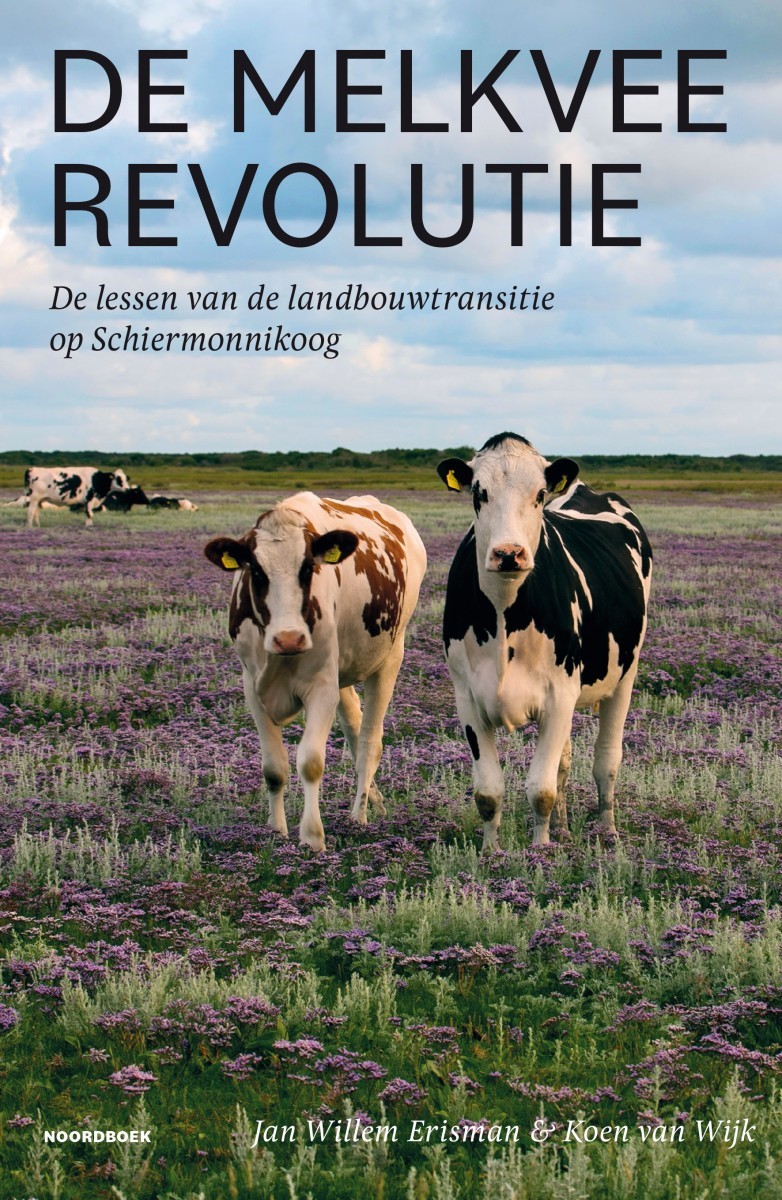
Nitrogen professor hands over book to nitrogen minister
Strengthening nature and at the same time investing in future-proof agriculture. That is the task of the Minister for Nature and Nitrogen, Christianne van der Wal. It is also the lifework of Leiden professor Jan Willem Erisman. He has been researching nitrogen for his entire career and has shown that it is possible to have both nature ánd agriculture. On 9 June, he presented his book "De melkveerevolutie. Lessons from the agricultural transition on Schiermonnikoog" to the Minister.

The Hague, 9 June, 9:30 in the morning, Ministry of Agriculture, Nature and Food Quality. Minister Van der Wal takes out the time to receive the recently published book by Jan Willem Erisman. He wrote it together with freelance journalist Koen van Wijk. In the book, he takes Schiermonnikoog as an example and shows how cattle farmers there started farming differently: more focused on biodiversity and a resilient ecological food system.
'Support for my policy'
The Minister was already familiar with the example of Schiermonnikoog. She finds it inspiring and hopeful. She is also pleased with the book. 'This will help me,' she explains. 'It is a support for my policy'.
Erisman hopes that readers will gain a better understanding of the nitrogen problem. What are the farmers' motives? But also: in what kind of system are they stuck? 'I’m convinced that more understanding will lead to more cooperation and eventually to good solutions for everyone. I also hope that farmers see that they can contribute to a sustainable future.'
Making the topic understandable to a wide audience
For the Minister, Erisman mainly hopes that she will learn the same lessons from the book that he once learned himself. 'And that she applies it in policy-making,' he adds. 'The nitrogen problem is very complex. With The Dairy Cattle Revolution, I want to make the subject comprehensible for a broad audience and policymakers.' Because that is also one of the purposes of his research: to provide politicians and the agricultural sector with well-substantiated data.'
‘The political discussion benefits from solid knowledge and good reasoning.’
The role of science in the nitrogen problem is clear to Erisman in this regard. 'Science can’t solve the problem, but it can provide the right facts and tell success stories, such as the one about Schiermonnikoog,' he explains enthusiastically. 'The political discussion benefits from solid knowledge and a good foundation. But ultimately it is up to the politicians and policymakers themselves what they do with the knowledge.'
Leiden research for a liveable planet
And that is what Jan Willem Erisman puts into practice at Leiden University. With the research network Liveable Planet he cooperates with scientists from various faculties. Together they search for the foundations of solutions for a sustainable future of our planet.

While the nitrogen crisis holds the Netherlands in its grip and dairy farming is under the magnifying glass, the farmers of Schiermonnikoog are taking a rigorous step. They are giving up a third of their dairy cows to limit the nitrogen deposition on the surrounding nature.
Schiermonnikoog's cattle farmers embrace nature-inclusive farming to improve biodiversity and ensure a resilient ecological food system. To compensate for the decline in production, the farmers now produce their own cheese brand, 'Van Schier'.
De melkveerevolutie is an instructive and enlightening book on the transition to sustainable agriculture, for all farmers, entrepreneurs in agribusiness, landscape specialists, administrators and policy developers throughout the Netherlands. The Rutte IV cabinet has earmarked 25 billion to meet the targets for nitrogen, water quality and climate by 2030. A large part of this will go to so-called area processes, for which the developments on Schiermonnikoog serve as an example.
De melkveerevolutie. De lessen van de landbouwtransitie op Schiermonnikoog, Jan Willem Erisman & Koen van Wijk, ISBN 9789056158651, published by Noordboek.
